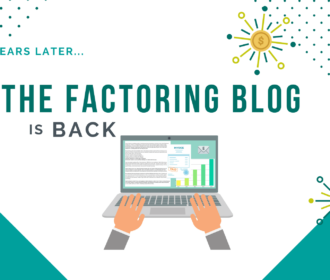Cash flow can be a big problem for a small business. Here are some tips on how to minimize costs for your small business while maximizing efficiency and making the most of your money.
1. Utilize Combined Purchasing Power
By reaching out to other small businesses and joining together to buy supplies, your collective purchasing power is more desirable to suppliers. Going to the suppliers as a cohesive unit and stating the businesses’ intentions of buying from the vendor who offers their goods at the best price, will make the group more likely to get a more competitive rate for the supplies, especially if the consortium signs an exclusive agreement with the vendor for a longer length of time. Getting supplies this way may also make it easier to ask for a discount and save your business even more cash.
2. Embrace the Idea of Interns
When a business looks to temp agencies for a person to complete more mundane tasks or help out at a company, they miss out on the beauty of offering an internship. There are numerous college students looking for opportunities and experience, many of whom will work for low wages or use an internship to earn college credit. Interns can be trained to contribute more to the business or be delegated undertakings such as filing, stuffing envelopes, or doing supply inventory. Many in this college-age workforce are also adept with technology and could help with your company’s website or social media reach, as well.
3. Go Green
Nearly half of office paper is thrown out within 24 hours of being printed. The amount of money spent on ink, paper, and professional printing could be better used within your company if you adopt a paperless workplace. Using electronic file storage and free online spaces like Google Docs or DropBox eliminates the need for hard copies of documents floating around the office and will save your company hundreds of dollars as your small business cuts back on printing and ink costs. Using laptops instead of desktop computers can also save you money as laptops use significantly less energy than a typical desktop PC. Additionally, buying appliances that are energy-efficient is also a great way to go green. While you may shell out more for the merchandise up front, in the long run, a more energy efficient product will save you money.
4. Reconsider Your Office Space
While paying rent is inevitable, subletting office space or moving your office to an industrial area rather than maintaining an office in commercial space can cut down your company’s costs. Considering establishing your business as a virtual presence is a viable option too; your employees can then work from home and you eliminate the need for office space entirely. If this isn’t a possibility for your business, try renegotiating with your landlord – with a low demand for office space, your landlord may be more accommodating with the rent to keep you as a tenant.
5. Pump Up Your Advertising
Getting the word out about your business and attracting new clients and customers can be expensive but focusing your marketing and advertising efforts online can save you money and have a far reach. Connecting with potential consumers in online forums and message boards or starting a blog lets your business advertise and publicize itself for free. Another possibility for free advertising is to reach out to clients and ask them to write a testimonial on your business’s website or tell their friends about your company – word of mouth can go a long way and serves as free PR for your corporation.
If slow paying customers or unexpected growth create cash flow challenges for your business despite your best cost cutting efforts, invoice factoring is the solution. PRN Funding partners with a wide network of experienced business factors who work with nearly all industries including staffing, transportation, construction, manufacturing, telecommunications and more. We can help get your company funded today!





